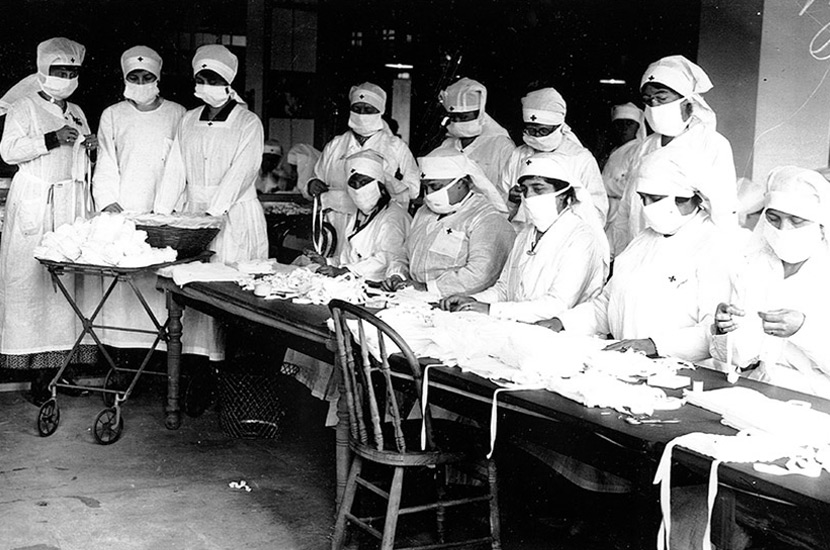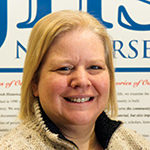
In 1918, cities in the United States became epicenters of the influenza disease, and Newark, NJ was no exception. Essential hospital workers were pushed to their limits and often worked 12- to 18-hour shifts during the peak of the epidemic. By 1919, Dr. Victor Parsonnet (the elder, as he was known) was physically weakened, according to his son, Eugene, whose oral history resides at the Jewish Historical Society of Greater MetroWest’s (JHS) archive. Records like these and the Newark Beth Israel Hospital’s (NBIMC) minutes, also in the archive, help us understand what our community faced during the last global pandemic.
In 2016, Dr. Sandra Moss came to the JHS hoping to find information about the community’s response to both the 1916 polio outbreak and the 1918 influenza in Newark. In our archives, Dr. Moss was able to access the NBIMC records, as well as synagogue newsletters, Landsmanshaftn (mutual aid societies) death certificates, and minutes and ledgers from various Jewish service agencies.
What was most unique about her discoveries in our archives were the personal accounts of what life was like for individuals, for families, and for communities during these times of crisis. What she found really helped fill out the human factor in her research.
As the archivist for JHS, I am keenly aware of two important factors as we deal with the current pandemic. First, I recognize that the value of being able to look back, compare how our community responded to crisis more than 100 years ago to today, and learn from the past to guide help guide present day public health planning, policy, and practice.
At the same time, I recognize the importance of documenting current historic events as they unfold, to inform the future. What makes present-day catastrophic events such as 9/11, Hurricane Sandy, and the COVID-19 pandemic different is that they are digitally recorded. Smartphones, social media posts, and now Zoom meetings capture the effects of these events in real time, and we archivists are desperate to preserve these moments.
This is where we need your help!
The JHS is interested in collecting materials (either actual objects or digital files) that reflect what our community is doing during this unprecedented time to populate our COVID-19 Collection. Ideas for submission include: a journal or diary, video or audio recordings, banners, flyers, announcements, photographic series or other artistic work.
We’re living in a historical moment. There’s no doubt that future historians and researchers will want to understand what it was like for us to go through these difficult times, just as today we draw inspiration and meaning from our community’s past. We are making history, and you can be a part of the story we tell!

